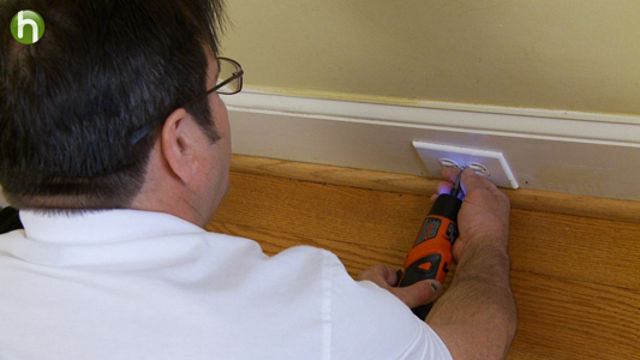Winter is coming up, making it time to think about improving the insulation on your house. This will reduce heating needs, helping you save money on energy bills, while helping the environment. Adding insulation to your house may seem daunting, but there are a few simple things which will help a lot.
The basic idea is to plug leaks that let cold air enter the house. That cold air of course makes the house feel cold, causing you to turn up the thermostat. By blocking the cold air from entering the house, it won’t feel as cold, and you won’t feel the need to turn up the thermostat.
Many doors are poorly sealed, and allow air to enter through cracks between the door and door frame. Weatherstripping is available at the hardware store, is easy to install, and will seal cracks around the door frame.
You can think of insulation in the wall as armor keeping the cold air outside. Any hole in the insulation is like a gap in the armor, and a skilled bowman can land an arrow in that gap. Maybe the analogy isn’t all that good, but there is an easily overlooked hole in wall insulation, electrical wall outlets. The hardware stores stock little easily installed foam inserts that sit behind the plastic cover to add insulation.
Some simple maintenance of appliances can improve their efficiency. For example dust accumulating under the refrigerator can make it less efficient and shorten its lifespan, while a fall cleaning can make it more efficient and lengthen its lifespan.
Another option in winter-time is to simply wear more layers of clothing. Each layer of clothing acts as a layer of personal-scale insulation. Several thinner layers of clothing can be more efficient at personal insulation, than is one thick layer.
An energy saving home audit can show you specific changes required for your house to improve its energy efficiency, keep the house warmer, save money, and decrease your personal impact on the environment.
- The USA should delete Musk from power, Instead of deleting whole agencies as he demands - February 14, 2025
- Elon Musk, fiduciary duties, his six companies PLUS his political activities - February 10, 2025
- Is there enough Grid Capacity for Hydrogen Fuel Cell or Battery Electric cars? - April 23, 2023
- Is Tesla finagling to grab federal NEVI dollars for Supercharger network? - November 15, 2022
- Tesla announces the North American Charging Standard charging connector - November 11, 2022
- Lightning Motorcycles adopts Silicon battery, 5 minute charge time gives 135 miles range - November 9, 2022
- Tesla Autopilot under US Dept of Transportation scrutiny - June 13, 2022
- Spectacular CNG bus fire misrepresented as EV bus fire - April 21, 2022
- Moldova, Ukraine, Georgia, Russia, and the European Energy Crisis - December 21, 2021
- Li-Bridge leading the USA across lithium battery chasm - October 29, 2021












